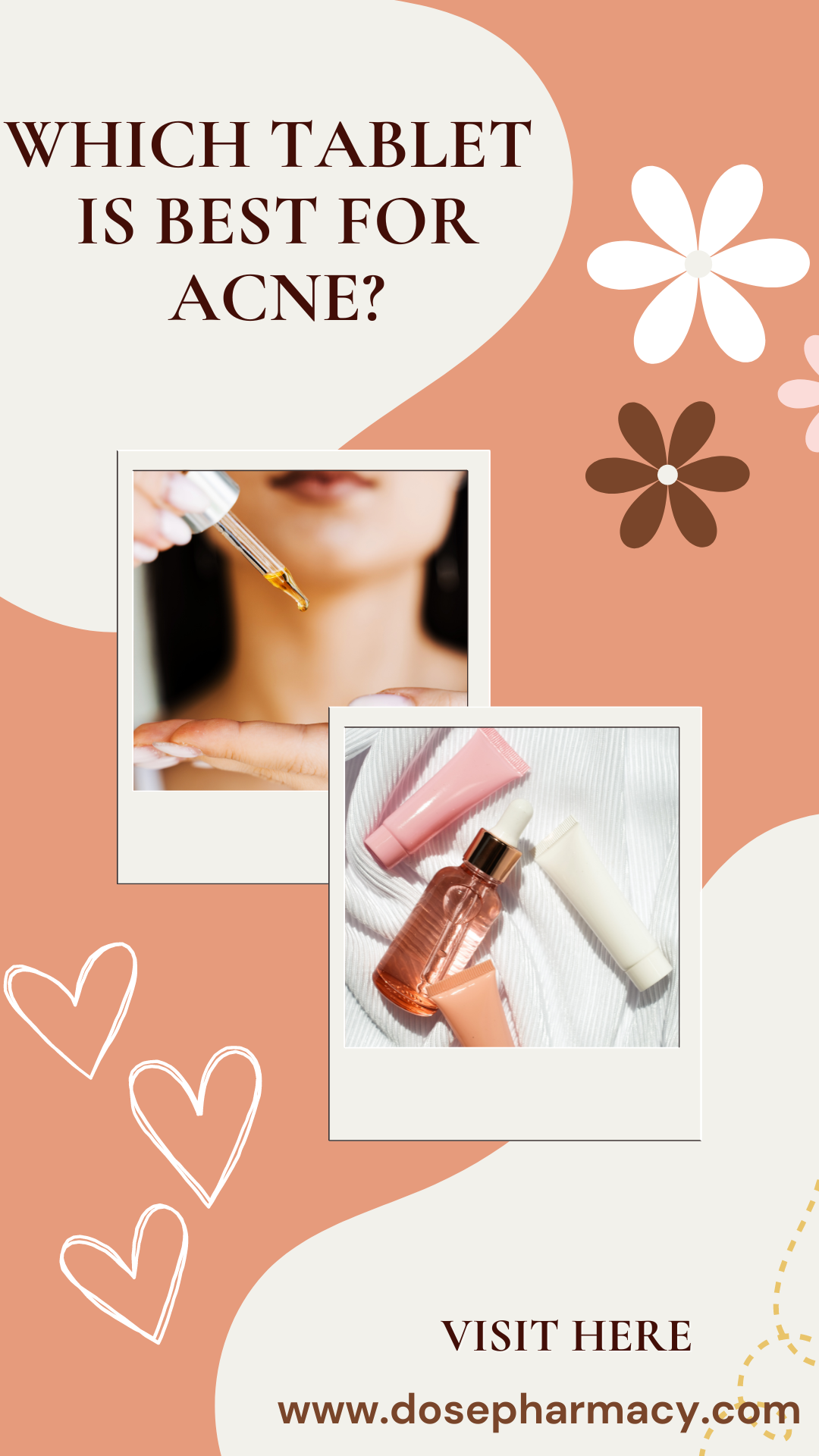What are the best non-prescription treatments for acne?

Acne is a common skin condition that affects millions of people worldwide. While prescription medications can be highly effective, there are also many non-prescription options available that can help manage and improve acne. If you are looking for some better cure then try isotretinoin 40 mg
Over-the-Counter (OTC) Medications
-
- Benzoyl Peroxide: This is a popular ingredient in many acne products. It works by killing bacteria that contribute to acne and reducing inflammation. It's available in various strengths, from 2.5% to 10%. If you want some genuine cure then you can buy accutane online at dosepharmacy
- Salicylic Acid: This beta-hydroxy acid exfoliates the skin, unclogs pores, and helps to reduce inflammation. It's often used in cleansers, toners, and spot treatments.
- Sulfur: Sulfur has antibacterial and anti-inflammatory properties that can help reduce acne. It's commonly found in soaps, masks, and ointments.
- Niacinamide: This form of vitamin B3 can help reduce inflammation, regulate oil production, and improve skin texture. It's available in moisturizers, serums, and creams.
Topical Treatments
- Tea Tree Oil: This natural oil has antibacterial properties that can help reduce acne. It's often used in diluted form as a spot treatment.
- Apple Cider Vinegar: Diluted apple cider vinegar can help balance the skin's pH and reduce inflammation. However, it's important to patch test it first, as it can be irritating for some people.
- Aloe Vera: Aloe vera gel can soothe irritated skin and reduce inflammation. It's often used as a moisturizer or spot treatment.
- Honey: Honey has antibacterial properties and can help reduce acne and improve skin texture. It's often used as a face mask.
Lifestyle Modifications
- Gentle Cleansing: Wash your face twice a day with a gentle cleanser to remove dirt and oil. Avoid harsh soaps or scrubbing, as this can irritate the skin.
- Moisturizing: Even if you have oily skin, it's important to moisturize regularly to prevent dryness and irritation. Look for non-comedogenic moisturizers that won't clog pores.
- Sunscreen: Protect your skin from the sun with a broad-spectrum sunscreen. Sun damage can worsen acne and lead to scarring.
- Healthy Diet: A balanced diet can help regulate hormones and reduce inflammation. Avoid excessive intake of sugary and processed foods.
- Stress Management: Stress can contribute to acne breakouts. Practice stress management techniques like meditation, yoga, or deep breathing.
Avoid Touching Your Face
Touching your face throughout the day can transfer bacteria and oils to your skin, leading to breakouts. Try to keep your hands off your face as much as possible.
Use Clean Bedding and Towels
Bacteria can accumulate on pillowcases, towels, and other fabrics. Wash these items regularly to help prevent acne.
Avoid Over-Exfoliation
While exfoliation can be beneficial for acne-prone skin, over-exfoliation can irritate the skin and worsen acne. Limit exfoliation to 2-3 times per week.
When to See a Dermatologist
If your acne is severe, persistent, or causing significant distress, it's important to consult with a dermatologist. They can provide a proper diagnosis and recommend more targeted treatments, including prescription medications if necessary.
Remember, it may take several weeks or months to see results from non-prescription acne treatments. Be patient and consistent with your skincare routine.
- Questions and Answers
- Opinion
- Motivational and Inspiring Story
- Technology
- Live and Let live
- Focus
- Geopolitics
- Military-Arms/Equipment
- Ασφάλεια
- Economy
- Beasts of Nations
- Machine Tools-The “Mother Industry”
- Art
- Causes
- Crafts
- Dance
- Drinks
- Film/Movie
- Fitness
- Food
- Παιχνίδια
- Gardening
- Health
- Κεντρική Σελίδα
- Literature
- Music
- Networking
- άλλο
- Party
- Religion
- Shopping
- Sports
- Theater
- Health and Wellness
- News
- Culture

